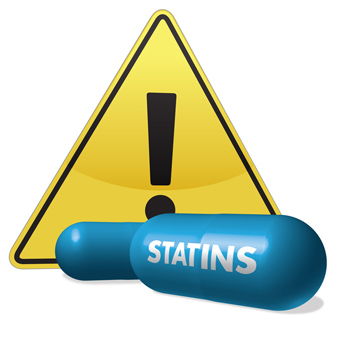The American Association of Clinical Endocrinologists (AACE) has updated its postmenopausal osteoporosis guidelines. The new guidelines cover risk factors and fall prevention measures in more detail than prior guidelines. Pharmacological treatment is recommended for patients with osteoporosis, patients with osteopenia who have had a fragility fracture of the hip or spine, and for patients with osteopenia who have a 10-year FRAX major fracture risk at or above 20%, or a 10-year FRAX hip fracture risk of 3% or above. https://www.aace.com/files/final-appendix-sept-7.pdf
Author: Misha Diden


Kerem Ozer, MD inducted as a Fellow of the American College of Endocrinology
The American College of Endocrinology (ACE), the educational and research arm of the American Association of Clinical Endocrinologists (AACE), inducted Dr. Kerem Ozer, Texas Diabetes & Endocrinology physician partner, as a Fellow of the American College of Endocrinology during its recent convocation ceremony at the 2016 AACE Annual Meeting and Clinical Congress in Orlando, Florida.
Designation as a Fellow of the American College of Endocrinology (FACE) means an endocrinologist has achieved a level of training and experience consistent with the highest standards established and adopted by the clinical specialty of endocrinology.
To be accepted into the College as a Fellow, Dr. Ozer had to fulfill several rigorous academic and clinical requirements. He also had to meet service and membership expectations from the college. Alan Garber, MD, PhD, FACE, ACE president, emphasized that the FACE title also underlines international recognition of a physician’s exceptional clinical and research achievements.
About 140 endocrinologists from around the world were inducted during the ceremony. The mission of ACE is to provide and promote education, research and communication in the art and science of clinical endocrinology and to provide appropriate recognition of advances and achievements relating to clinical endocrinology.
AACE is currently the world’s largest organization representing clinical endocrinologists. With more than 6,500 members in the United States and 91 other countries, the organization has developed a robust network of professional associates.
For more information, visit www.aace.com.

Statins & Diabetes
Despite great strides in health care, heart disease remains the number one cause of death in the United States. Individuals with diabetes are three times more likely to develop heart disease, heart attack or stroke than someone without diabetes. We at TDE take this very seriously and work with our patients to reduce their cardiac risk. Of course the best approach to healthcare is prevention: maintaining an optimal weight, engaging in regular exercise and enjoying a healthy diet low in saturated fats. However, when cholesterol can’t be controlled with lifestyle changes alone, statins are an excellent option.
Why statins?
Statins such as Lipitor and Crestor have been researched extensively with studies showing a powerful reduction of LDL (bad) cholesterol (20-60%) and more importantly, a significantly reduced risk of heart attack and stroke. Statins reduce production of LDL cholesterol and triglycerides and can increase HDL (healthy) cholesterol levels. Statins have also been shown to have anti-inflammatory properties and may reverse damage from atherosclerosis in some cases. Further studies have suggested a connection between statin use and a decreased risk of developing some forms of dementia as well as improved outcomes in patients with heart failure and cardiac bypass surgery. The American Diabetes Association recommends statins for individuals with known cardiovascular disease, prior heart attack or stroke, high levels of LDL and those with diabetes between the ages of 40 and 75 years.
What is the impact of statins on blood sugar?
The news recently reported the results of a study linking the use of statins to an increased risk of diabetes. This is of course a concern as the goal of statin therapy is to reduce risk. It is true that statins can cause a mild increase in blood sugars in some individuals and bears watching. However, given the cardiac benefits, the American Diabetes Association issued the following statement, “The clear benefits of statins on cardiovascular disease likely outweigh any potential detrimental effects on glucose metabolism and diabetes risk.” A representative from the Food and Drug Administration stated, “Clearly we think that the heart benefit of statins outweighs this small increased risk.”
What about side effects?
Side effects are an important consideration whenever starting a new medication. Studies have suggested that adverse side effects occur less often with statins than with most other classes of cholesterol lowering medications. The most common side effect is muscle soreness. This can be related to the dose of the statin or vary with the type of statin being used. We also follow liver enzymes in patients taking statins as these markers can rise in some people. Most patients tolerate these medications very well and the American Association for Clinical Endocrinologists continues to recommend statins as the preferred treatment for cholesterol reduction. When starting any medication it is important to discuss the risks and benefits with your health care provider.
Study published in JAMA Network by Lindsay Harrison, MD
Effect of Adding Liraglutide vs Placebo to a High-Dose lnsulin Regimen in Patients With Type 2 Diabetes: A Randomized Clinical Trial
Liraglutide added to high-dose insulin therapy improved glycemic control, decreased body weight, and enhanced treatment satisfaction in this difficult-to-treat patient population with high-dose insulin requirements. Further studies are warranted to confirm these findings and evaluate the long-term risk and benefit of this treatment option. Read more at: http://archinte.jamanetwork.com/article.aspx?articleid=2526669

